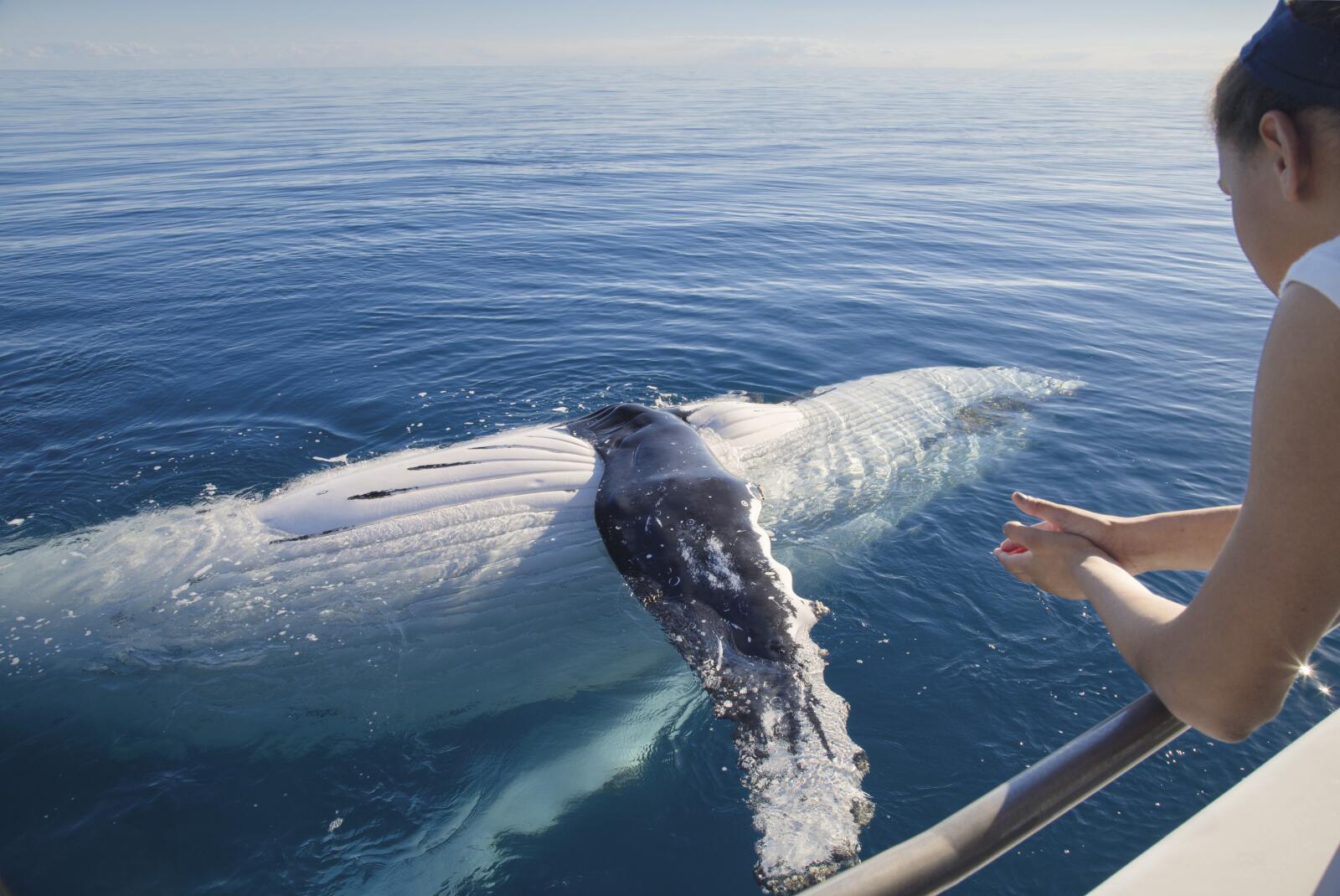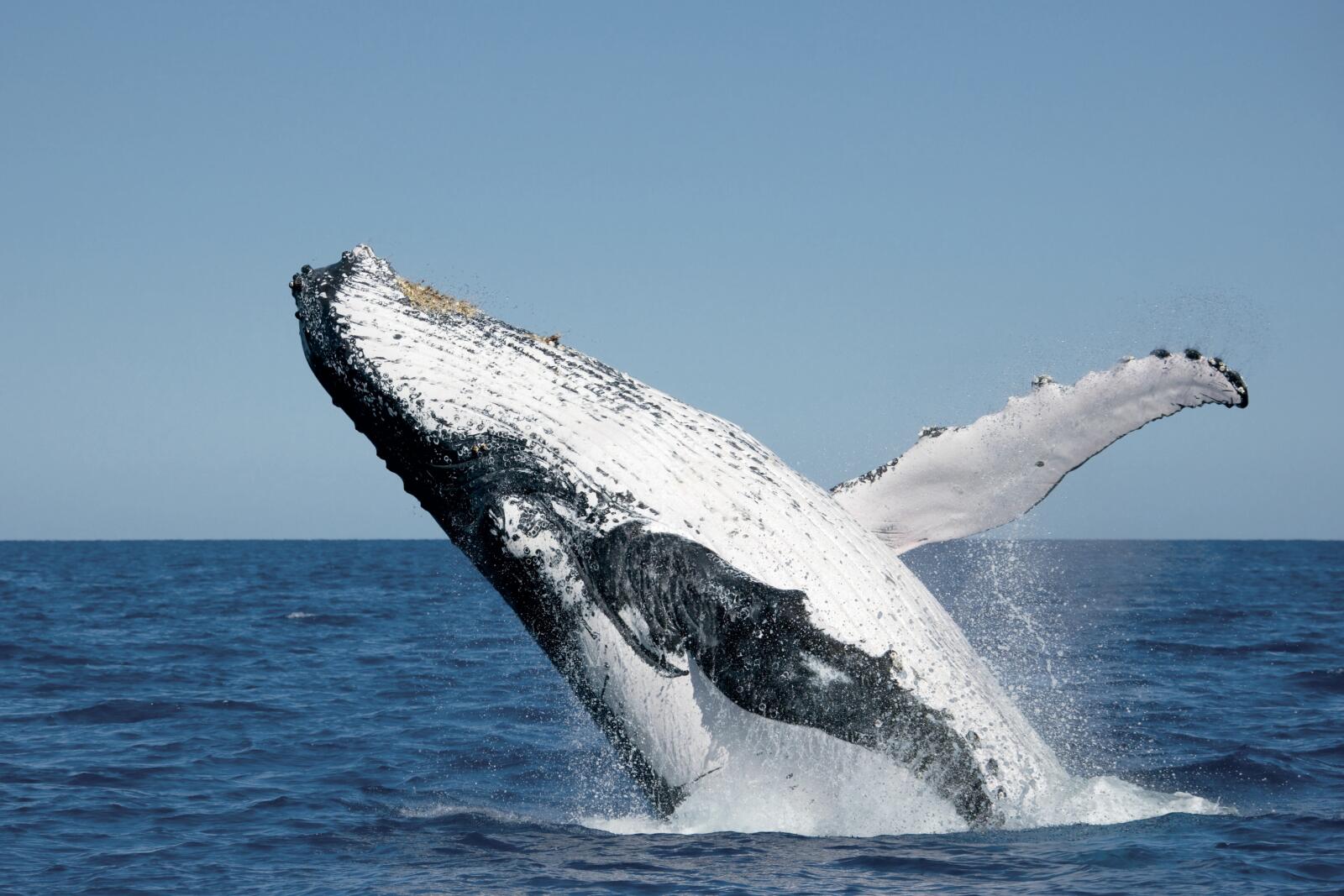
'Missing' Migaloo Believed to Have Migrated to Great Barrier Reef
Australia's most famous humpback whale Migaloo is missing after being spotted on the Gold Coast on his annual migration. Known for his distinctive all-white colouring, he was the world's only white whale when he was first sighted. Each year he makes his migration up Australia's east coast, all the way from the cold waters of Antarctica to the warm waters of Tropical North Queensland.
Although he is 'missing' officers from parks and wildlife aren't too concerned, believing he has probably already reached the Great Barrier Reef. An investigation was launched after boats on the Gold Coast got too close to the migrating celebrity mammal. Since then a vessel from the Queensland Parks and Wildlife Service had been keeping a close eye on him.
Migaloo was last spotted a few days ago near Fraser Island and didn't appear to be part of another group of about 50 whales who later passed through the area. Although much is known about the general habits of migrating whales and indeed the habits of Migaloo, the truth is he is a wild animal and is not tagged, so he moves at his own pace and tracking can be difficult.
While Migaloo may not have a travel agent, he was spotted earlier travelling with a younger whale friend who is also believed to be male. In fact, experts believe the two have been migrating together on and off for at least six years. Visitors to the area have been told to keep their eyes peeled for the white whale. Great Barrier Reef cruises have been excited by the prospect of getting up close and personal to the rate mammal, however there are special protections in place.
Typical regulations state that single watercrafts must keep a distance of 100m from migrating whales however for Migaloo the special protection area extends to 500m. Hefty penalties apply to any watercraft intentionally moving too close to whales including an on-the-spot-fine of $609 or a maximum penalty of over $20,000.

(3rd August 2016)
